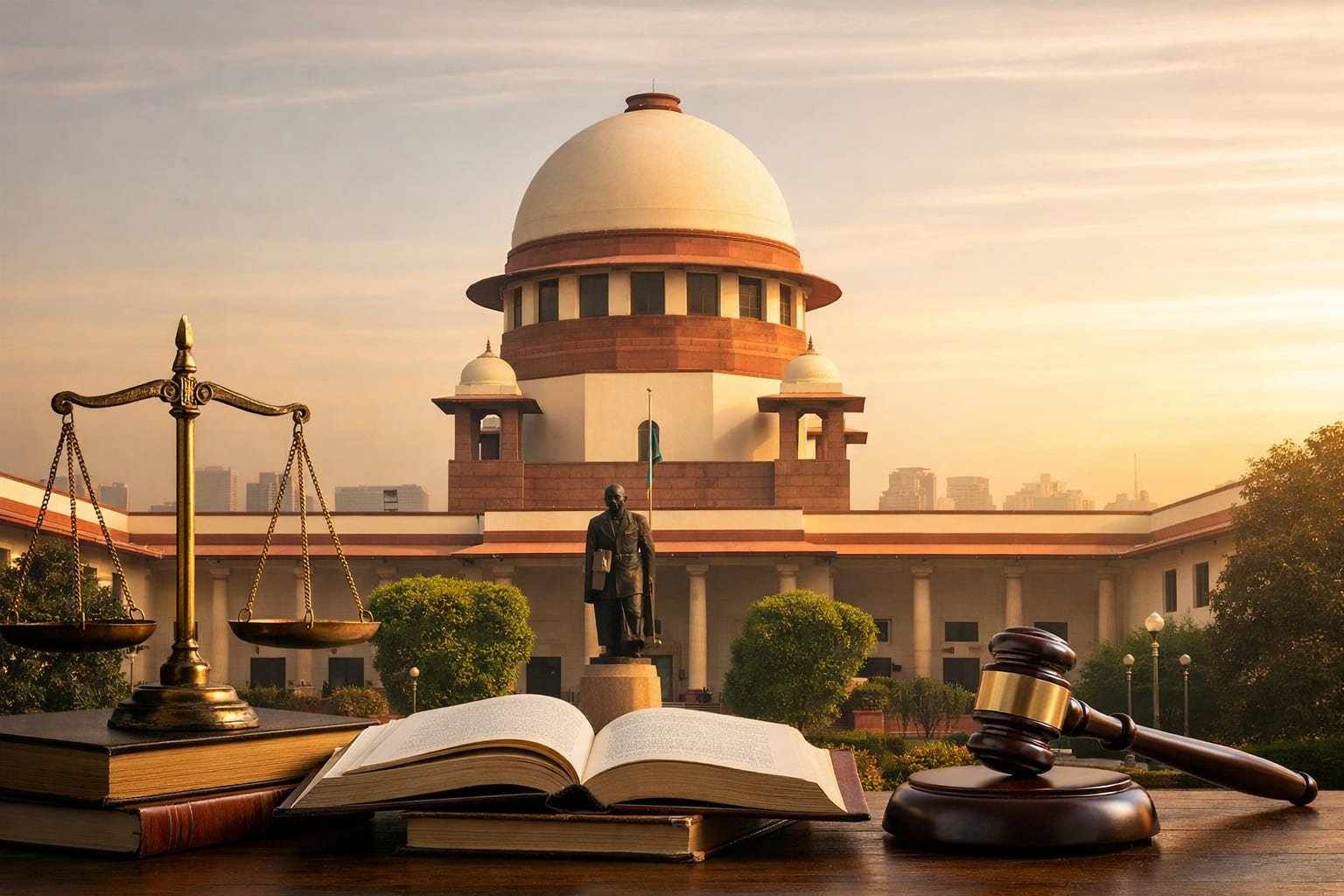India’s legal framework is a complex yet well-structured system that encompasses various branches of law. Among these, civil law holds a crucial place as it governs the rights and obligations of individuals and organizations in their private relationships. While criminal law focuses on punishing offenders for unlawful acts, civil laws in India deal with disputes between private parties, offering remedies in the form of compensation or enforcement of rights rather than imprisonment.
At Patrons Legal, our experienced team of civil lawyers specializes in civil law matters, offering tailored solutions to individuals, businesses, and organizations. Whether you are facing a property dispute, seeking divorce, fighting for your inheritance, or dealing with a breach of contract, understanding the scope and framework of civil laws in India is essential.
Understanding Civil Law in India
Civil law refers to the set of legal rules and principles designed to resolve disputes between individuals, organizations, or entities. It is fundamentally about protecting rights, enforcing agreements, and providing remedies for wrongs that are not criminal in nature.
The primary aim of civil law is to restore the affected party to their rightful position, often through compensation or injunctions rather than punishment. Whether it is a contractual disagreement, a property dispute, or a family matter, civil law provides a structured mechanism for resolution.
Key Features of Civil Law in India
Civil laws in India are characterized by several important features:
-
Private Disputes: Civil law primarily addresses disputes between private parties rather than offenses against the state.
-
Remedial in Nature: The purpose is to provide relief, such as compensation or restitution, rather than imposing criminal penalties.
-
Codified System: Most civil laws are well-documented in statutes and codes, ensuring uniformity in application.
-
Wide Scope: It covers diverse areas like contracts, property, family law, torts, and more.
-
Jurisdiction of Civil Courts: Civil courts, from district courts to the High Court and Supreme Court, play a crucial role in adjudicating civil disputes.
The Importance of Civil Laws in India
Civil laws are essential for maintaining peaceful coexistence in society. They:
-
Protect Individual Rights – Civil laws safeguard personal and property rights, ensuring that people can live and work without unwarranted interference.
-
Provide Remedies – They ensure victims of breaches or wrongs receive appropriate compensation or relief.
-
Regulate Relationships – Civil laws govern personal, professional, and contractual relationships, bringing predictability and security to social interactions.
-
Prevent Exploitation – Laws relating to consumer protection, labor rights, and tenancy prevent exploitation by balancing power between parties.
At Patrons Legal, we understand that civil disputes often involve personal, financial, or emotional stakes, making it critical to approach them with a blend of legal expertise and empathy.
Types of Civil Laws in India
Civil law in India is a broad umbrella covering numerous legal areas. Let’s explore some of the most significant branches:
1. Contract Law
Contracts are at the heart of commercial and personal transactions.
-
Legislation: The Indian Contract Act 1872 lays down the rules for creating, enforcing, and voiding contracts.
-
Common Disputes: Breach of contract, non-performance, and fraudulent misrepresentation.
-
Role of Courts: Courts ensure that agreements are upheld and that aggrieved parties receive compensation for losses.
2. Property Law
Property laws regulate ownership, transfer, and inheritance of property.
-
Legislation: The Transfer of Property Act, 1882, the Indian Easements Act, 1882, and the Registration Act, 1908 are key statutes.
-
Common Disputes: Boundary issues, inheritance conflicts, ownership claims, and tenancy disagreements.
-
Patrons’ Legal Expertise: We handle complex property disputes, ensuring rightful ownership and protection of client interests.
3. Family Law
Family law governs personal matters related to marriage, divorce, adoption, and succession.
-
Legislation: Includes the Hindu Marriage Act, 1955, the Special Marriage Act, 1954, the Hindu Succession Act, 1956, and personal laws for different religions.
-
Common Disputes: Divorce, child custody, alimony, and property division.
-
Role of Patrons Legal: Our family law experts provide compassionate guidance while protecting your legal rights.
4. Consumer Protection Law
Consumers are protected from unfair trade practices, defective products, and deficient services.
-
Legislation: Consumer Protection Act, 2019.
-
Common Disputes: Faulty goods, misleading advertisements, and deficient services.
-
Relief: Consumers can seek compensation through district, state, or national consumer forums.
5. Law of Torts
Torts cover civil wrongs where one party’s actions cause harm to another.
-
Common Examples: Defamation, negligence, nuisance, and trespass.
-
Relief: Courts may grant compensation or injunctions to the aggrieved party.
6. Labor & Employment Law
Regulating the relationship between employers and employees is critical for workplace justice.
-
Legislation: Industrial Disputes Act, 1947, Factories Act, 1948, and other labor laws.
-
Common Disputes: Wrongful termination, wage issues, and harassment at the workplace.
7. Intellectual Property Law
Intellectual property rights protect innovations, creative works, and brand identities.
-
Legislation: Copyright Act, 1957, Patents Act, 1970, Trademarks Act, 1999.
-
Common Disputes: Trademark infringement, copyright violations, and patent disputes.
8. Administrative and Service Law
These laws govern the rights and obligations of public servants and their service conditions.
Important Civil Law Legislations in India
India’s civil law framework is built on several important legislations, including:
-
Indian Contract Act, 1872
-
Transfer of Property Act, 1882
-
Specific Relief Act, 1963
-
Indian Easements Act, 1882
-
Indian Partnership Act, 1932
-
Hindu Marriage Act, 1955
-
Special Marriage Act, 1954
-
Consumer Protection Act, 2019
-
Companies Act, 2013
These laws collectively form the backbone of India’s civil justice system.
Civil Court Hierarchy in India
Civil disputes are adjudicated through a well-defined court hierarchy:
-
District Civil Courts: First level of adjudication for most civil disputes.
-
High Courts: Handle appeals and high-value cases; some also have original civil jurisdiction.
-
Supreme Court of India: The apex court that hears appeals and constitutional matters.
At Patrons Legal, we represent clients at all levels, ensuring robust representation from trial to appeal.
How Are Civil Cases Filed in India?
The process of filing a civil case involves:
-
Drafting a Plaint: The plaintiff’s written statement detailing the grievance.
-
Filing in Court: Submitting the plaint to the appropriate civil court.
-
Summons: Issued to the defendant to appear in court.
-
Written Statement: Defendant’s response to the plaint.
-
Evidence & Hearing: Both parties present evidence and arguments.
-
Judgment & Decree: The court issues its verdict and relief.
Patrons Legal ensures this process is handled meticulously, keeping clients informed at every stage.
Why Choose Patrons Legal for Civil Law Matters?
Civil cases often involve personal stakes, financial implications, and long-term consequences. At Patrons Legal, we provide comprehensive legal assistance for all types of civil disputes. Our experienced team of civil lawyers in Delhi helps clients by:
-
Drafting and reviewing contracts
-
Advising on property and family disputes
-
Representing clients in civil courts and tribunals
-
Offering alternative dispute resolution (ADR) through arbitration and mediation
We understand that civil disputes can be emotionally and financially draining. Our approach focuses on strategic solutions to resolve matters efficiently, keeping our clients’ best interests at the forefront.
Conclusion
Civil laws in India play a vital role in resolving private disputes, protecting rights, and upholding justice. Whether it is a family conflict, a property dispute, or a contractual disagreement, civil laws provide a structured mechanism to address grievances and ensure fair outcomes.
At Patrons Legal, we understand that civil disputes often go beyond legal complexities—they affect lives, relationships, and businesses. Our mission is to guide you through these challenges with competence, care, and a commitment to excellence. If you are facing a civil law issue in Delhi or across India, contact us today for expert advice or representation, and let us help you navigate your legal journey with confidence.








Leave a Reply